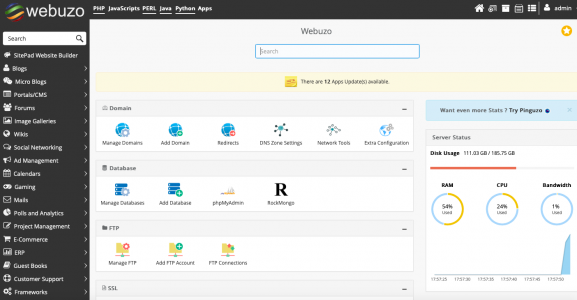Installing Webuzo on a fresh CentOS7
Webuzo is a solitary client control board/Application Director which permit clients to convey mainstream web applications like Siberian Cms, Nwicode Cms, WordPress, Joomla and Drupal and so forth with a single click. No System Administrator level skills are required to introduce such applications.
You need to concentrate on utilizing the application as opposed to keeping up that application and is similar to cPanel. Webuzo is perfect for use in enterprises, small to medium business situations and just about 240 web applications are supported by Webuzo. It is reasonable for web engineers to use alongside web applications, framework applications like MongoDB, Apache, NGINX, Java and so forth. In this article, we can discuss about how to install Webuzo on a CentOS7 server.
Installation steps
1) Login to your server as a root user. You can use the following command to login your server.
$ ssh root@ipaddress
Note: Please change the ipadress with your server IP address.
2) Execute the following command to ensure that your system is up to date.
$ yum -y update
3) Enter the following command to get the Webuzo installer.
$ wget -N http://files.webuzo.com/install.sh
4) Once the download has been completed, make the script executable using the ‘chmod’ command.
$ chmod 755 install.sh
5) Now we need to install Webuzo on your server. Execute the following command for installing Webuzo.
$ ./install.sh
Wait for the process to complete and the installer will provide further instructions to get started with your Webuzo Control Panel.
After the Webuzo has been installed you can access the Webuzo end-user panel using the following URL:
http://IP-ADDR:2002/ or https://IP-ADDR:2003
Please change the IP-ADDR with your server IP address. The Username and Password will be the same as you mentioned during the Initial Setup.
The Webuzo End-user panel should look like the following:



















